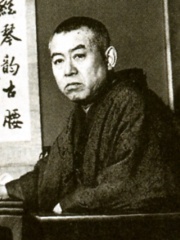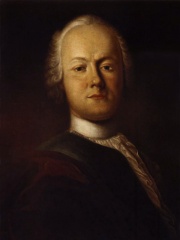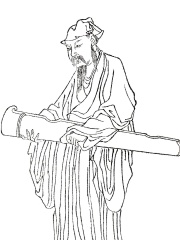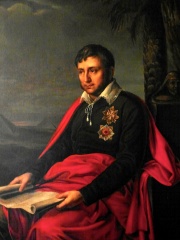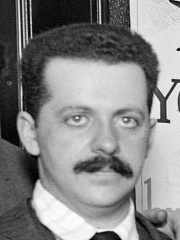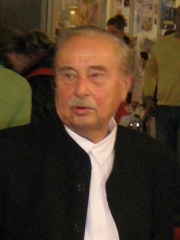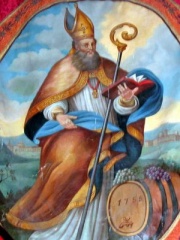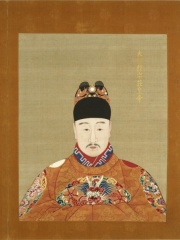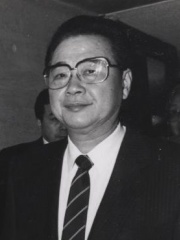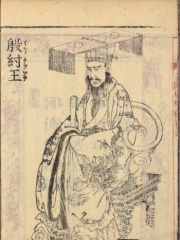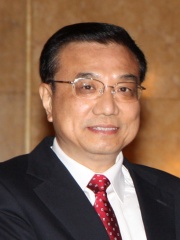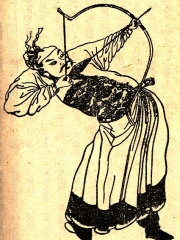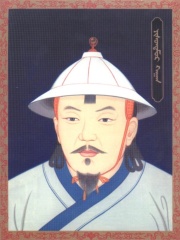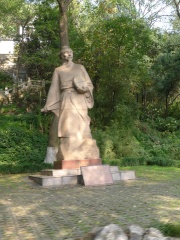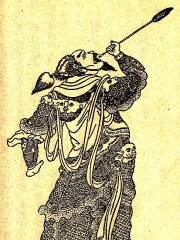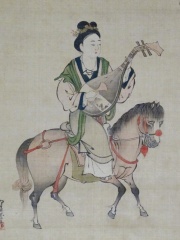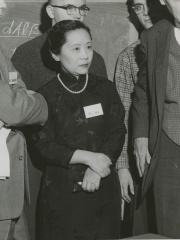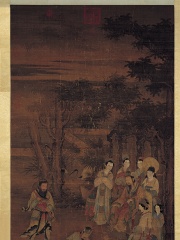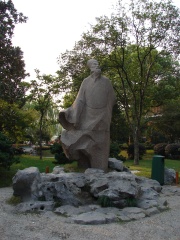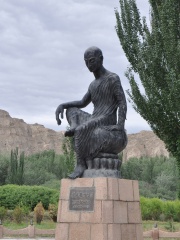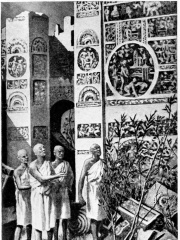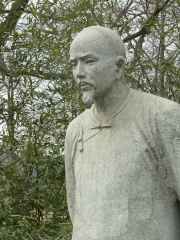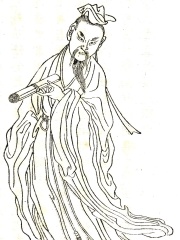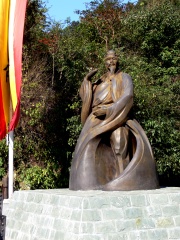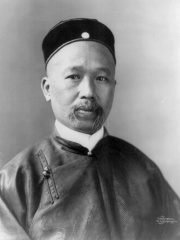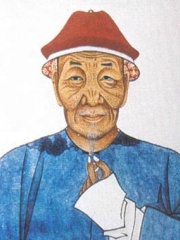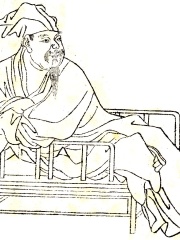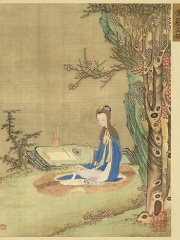WRITER
Wang Wei
699 - 759
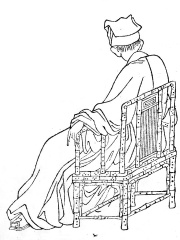
 Wang Wei
Wang Wei
Wang Wei (simplified Chinese: 王维; traditional Chinese: 王維; pinyin: Wáng Wéi; 699–761), courtesy name Mojie, was a Chinese musician, painter, poet, and politician of the middle Tang dynasty. He is regarded as one of the most distinguished men of arts and letters of his era. About 400 of his poems survived and 29 of them are included in the 18th-century anthology Three Hundred Tang Poems. A large portion of his finest poems drew inspirations from the local landscape. Read more on Wikipedia
His biography is available in 42 different languages on Wikipedia. Wang Wei is the 792nd most popular writer (down from 586th in 2024), the 203rd most popular biography from China (down from 161st in 2019) and the 16th most popular Chinese Writer.
Wang Wei is most famous for his poetry.
Memorability Metrics
Page views of Wang Wei by language
Among WRITERS
Among writers, Wang Wei ranks 792 out of 7,302. Before him are Jun'ichirō Tanizaki, Gnaeus Naevius, Friedrich Gottlieb Klopstock, Tao Yuanming, Jan Potocki, and Edward Bernays. After him are Nonnus, Milorad Pavić, Dionysius Thrax, Marilyn vos Savant, Ryszard Kapuściński, and Bar Hebraeus.
Most Popular Writers in Wikipedia
Go to all RankingsJun'ichirō Tanizaki
1886 - 1965
HPI: 69.67
Rank: 786
Gnaeus Naevius
275 BC - 201 BC
HPI: 69.65
Rank: 787
Friedrich Gottlieb Klopstock
1724 - 1803
HPI: 69.65
Rank: 788
Tao Yuanming
365 - 427
HPI: 69.63
Rank: 789
Jan Potocki
1761 - 1815
HPI: 69.63
Rank: 790
Edward Bernays
1891 - 1995
HPI: 69.63
Rank: 791
Wang Wei
699 - 759
HPI: 69.61
Rank: 792
Nonnus
500 - 500
HPI: 69.60
Rank: 793
Milorad Pavić
1929 - 2009
HPI: 69.60
Rank: 794
Dionysius Thrax
170 BC - 89 BC
HPI: 69.60
Rank: 795
Marilyn vos Savant
1946 - Present
HPI: 69.58
Rank: 796
Ryszard Kapuściński
1932 - 2007
HPI: 69.57
Rank: 797
Bar Hebraeus
1226 - 1286
HPI: 69.57
Rank: 798
Contemporaries
Among people born in 699, Wang Wei ranks 1. Among people deceased in 759, Wang Wei ranks 1. After him are Yusuf ibn 'Abd al-Rahman al-Fihri, Saint Othmar, and Oswulf of Northumbria.
Others Born in 699
Go to all RankingsOthers Deceased in 759
Go to all RankingsWang Wei
WRITER
699 - 759
HPI: 69.61
Rank: 1
Yusuf ibn 'Abd al-Rahman al-Fihri
POLITICIAN
711 - 759
HPI: 60.07
Rank: 2
Saint Othmar
RELIGIOUS FIGURE
689 - 759
HPI: 59.76
Rank: 3
Oswulf of Northumbria
POLITICIAN
800 - 759
HPI: 50.67
Rank: 4
In China
Among people born in China, Wang Wei ranks 203 out of 1,610. Before him are Longqing Emperor (1537), Li Peng (1928), King Zhou of Shang (-1105), Li Keqiang (1955), Zhang Liao (169), and Tao Yuanming (365). After him are Yesün Temür (1293), Zu Chongzhi (429), Xiahou Dun (155), Wang Zhaojun (-50), Chien-Shiung Wu (1912), and Emperor Wen of Han (-202).
Others born in China
Go to all RankingsLongqing Emperor
POLITICIAN
1537 - 1572
HPI: 69.78
Rank: 197
Li Peng
POLITICIAN
1928 - 2019
HPI: 69.74
Rank: 198
King Zhou of Shang
POLITICIAN
1105 BC - 1046 BC
HPI: 69.69
Rank: 199
Li Keqiang
POLITICIAN
1955 - 2023
HPI: 69.69
Rank: 200
Zhang Liao
MILITARY PERSONNEL
169 - 222
HPI: 69.67
Rank: 201
Tao Yuanming
WRITER
365 - 427
HPI: 69.63
Rank: 202
Wang Wei
WRITER
699 - 759
HPI: 69.61
Rank: 203
Yesün Temür
POLITICIAN
1293 - 1328
HPI: 69.58
Rank: 204
Zu Chongzhi
MATHEMATICIAN
429 - 500
HPI: 69.57
Rank: 205
Xiahou Dun
MILITARY PERSONNEL
155 - 220
HPI: 69.55
Rank: 206
Wang Zhaojun
POLITICIAN
50 BC - 100 BC
HPI: 69.53
Rank: 207
Chien-Shiung Wu
PHYSICIST
1912 - 1997
HPI: 69.53
Rank: 208
Emperor Wen of Han
POLITICIAN
202 BC - 157 BC
HPI: 69.50
Rank: 209
Among WRITERS In China
Among writers born in China, Wang Wei ranks 16. Before him are Su Shi (1037), Kumārajīva (343), Faxian (340), Cao Xueqin (1724), Ban Gu (32), and Tao Yuanming (365). After him are Jin Yong (1924), Zhang Sanfeng (1200), Kang Youwei (1858), Pu Songling (1640), Ouyang Xiu (1007), and Cai Yan (177).
Su Shi
1037 - 1101
HPI: 71.71
Rank: 10
Kumārajīva
343 - 413
HPI: 71.30
Rank: 11
Faxian
340 - 418
HPI: 70.81
Rank: 12
Cao Xueqin
1724 - 1763
HPI: 70.07
Rank: 13
Ban Gu
32 - 92
HPI: 69.92
Rank: 14
Tao Yuanming
365 - 427
HPI: 69.63
Rank: 15
Wang Wei
699 - 759
HPI: 69.61
Rank: 16
Jin Yong
1924 - 2018
HPI: 69.19
Rank: 17
Zhang Sanfeng
1200 - 1301
HPI: 68.99
Rank: 18
Kang Youwei
1858 - 1927
HPI: 68.82
Rank: 19
Pu Songling
1640 - 1715
HPI: 68.77
Rank: 20
Ouyang Xiu
1007 - 1072
HPI: 68.15
Rank: 21
Cai Yan
177 - 250
HPI: 67.04
Rank: 22
